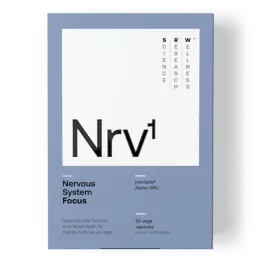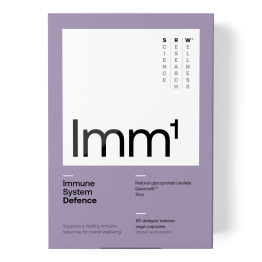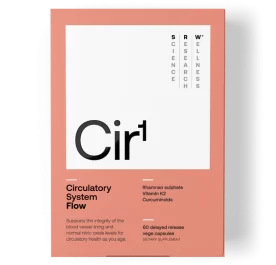The Power 9
Dubbed “Blue Zones”, researchers have identified the five areas in the world with the longest and healthiest life expectancies and pinpointed nine common diet and lifestyle habits they call “the Power 9”. Happily, these habits are easy for most of us to incorporate into our lives.
Having studied centenarians and others living in Blue Zones – Okinawa in Japan, Sardinia in Italy, Nicoya in Costa Rica, Icaria in Greece and the Seventh-day Adventist community in Loma Linda, California – longevity expert and New York Times bestseller Dan Buettner identified these nine simple lessons that can help us live healthier, happier and longer lives.
- Move Naturally
It turns out that gym memberships and marathons aren’t part of life in the Blue Zones. These communities live in environments that “constantly nudge them into moving”. They grow their own food, farm on hilly terrain, walk to their neighbours, and don’t have many mechanical conveniences.
In his book, The Blue Zones, Buettner suggests getting rid of our TV remotes and garage door openers for starters and embracing walking. “This is the one activity that all successful centenarians did – and do – almost daily.” Yoga, gardening and housework are also recommended.
- Purpose
The Okinawans call it “Ikigai” and the Nicoyans “plan de vida”, which translates as “why I wake up in the morning”. It’s about feeling needed and wanting to contribute to the greater good and can be as simple as seeing that your children or grandchildren grow up well.
Blue Zone researchers estimate that having a sense of purpose can add an extra seven years to our lives. “The strong sense of purpose possessed by older Okinawans may act as a buffer against stress and help reduce their chances of suffering from Alzheimer’s, disease, arthritis, and stroke,” writes Buettner.
If you don’t have a sense of purpose, try crafting a personal mission statement by answering this question in one sentence: Why do I get up in the morning? It’s helpful to share your purpose with someone who can help you assess your plan and your successes.
- Down Shift
We can learn a lot from the Blue Zones about managing stress. Okinawans take time out every day to remember their ancestors, Adventists pray, Ikarians take a nap and Sardinians enjoy happy hour with friends at the end of each day. Follow their lead and find simple ways to unwind – sit in the sun, have a snooze, meditate, catch up with friends, laugh or sing.
Other tips to help you slow down include being early for appointments and minimising the time you spend with screens. “Most electronic entertainment just feeds mind chatter and works counter to the notion of slowing down.”
- 80% Rule
“Hara hachi bu” – the 2,500-year-old Confucian mantra said before meals – reminds Okinawans to stop eating when their stomachs are 80 percent full. The 20 percent gap between not being hungry and feeling full could be the difference between losing weight or gaining it, says Buettner. Some simple strategies to help you eat less include eating from smaller plates; eating more slowly, eating mindfully, away from all screens; and sitting down to eat.
Buettner also recommends occasional fasting. “Regularly and moderately reducing calories … may yield some of the same longevity benefits Ikarians enjoy.”
- Plant Slant
The longest-lived people in the world eat a mainly plant-based diet centred on beans, legumes, greens, nuts, wholegrains and fruits. Meat is eaten on average only five times per month and serving sizes are small, about the size of a deck of cards.
Some tips from The Blue Zones to help you emulate this diet include eating four to six vegetable servings per day, limiting small servings of meat to twice weekly, including more beans in your diet, avoiding processed foods, and eating nuts every day.
- Grapes of Life
People in all Blue Zones (except Loma Linda) drink alcohol moderately and regularly. The key word here is “moderately” – a maximum of one to two glasses per day; overdoing it negates any possible benefits. Drinking with friends over a meal creates a sense of occasion and makes it more likely you’ll eat slowly and relax. Laden with polyphenols, dark red wine is particularly beneficial, with Sardinian Cannonau coming out with the gold antioxidant star.
- Belong
The vast majority of centenarians interviewed belonged to some faith-based community. “The simple act of worship is one of those subtly powerful habits that seems to improve your chances of having more good years,” says Buettner. “It doesn’t matter if you are Muslim, Christian, Jewish, Buddhist or Hindu.”
Researchers estimate that attending faith-based services four times per month can increase life expectancy by four to 14 years.
- Loved Ones First
Most of the centenarians the researchers met in the Blue Zones put their families first, committing to a life partner and investing time and love in their children. Many of them lived with family members. “Their lives were imbued with familial duty, ritual, and a certain emphasis on togetherness.”
- Right Tribe
Research shows that smoking, obesity, happiness, and even loneliness are contagious, so follow the lead of the world’s longest-lived people and build a social network that supports healthy behaviours.
“This is perhaps the most important thing you can do to change your lifestyle for the better,” says Buettner.
We may not belong to a “moai” (a group of friends that commit to each other for life) like they do in Okinawa, but we can hopefully come up with a list of family members and friends who support healthy habits, challenge us mentally and are there for us in times of need.
Prioritise spending time with these people, catching up regularly for a meal or a walk.
And do what you can to be likeable. “Likeable old people are more likely to have a social network, frequent visitors and de facto caregivers. They seem to experience less stress and live purposeful lives.”
Find out more about the Blue Zones and what you can do to live a longer, healthier life at bluezones.com.





